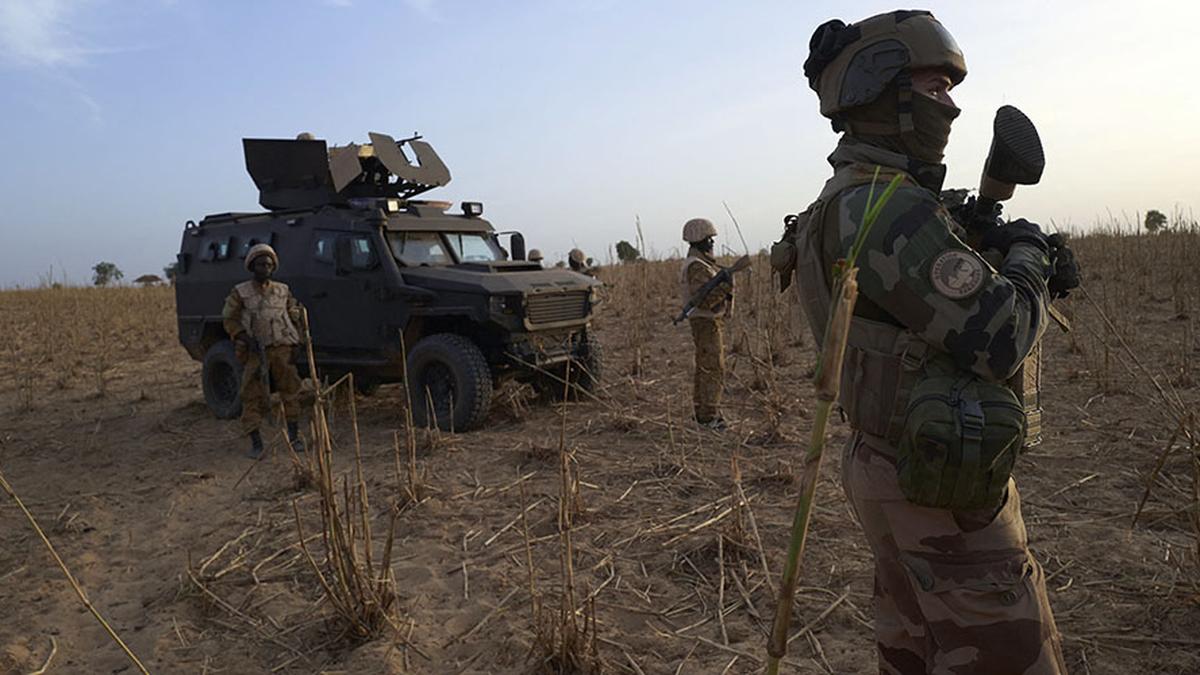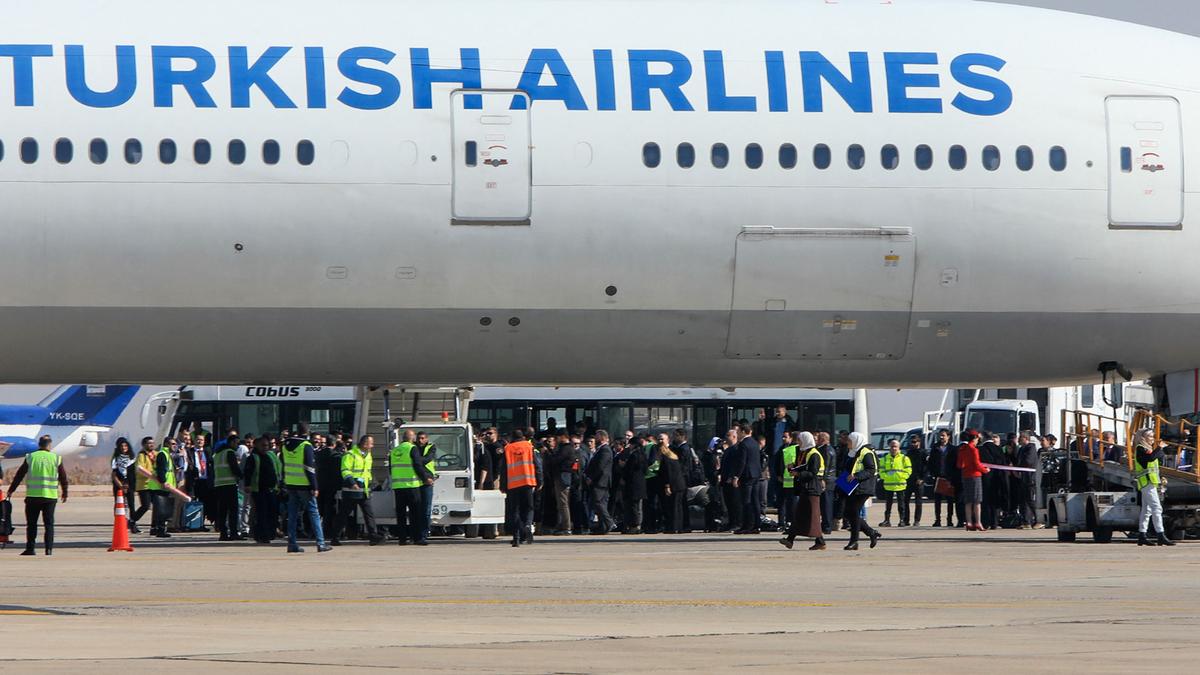The story so far:
On January 1, Ivory Coast President Alassane Ouattara announced that French troops would withdraw from the country by the end of the month. On December 26, in Chad, France handed over its military base in Faya-Largeau and began the withdrawal of troops following the termination of a defence cooperation agreement in November. On December 3, Senegalese President Bassirou Diomaye Faye called for the closure of all French military bases, commenting that their presence was “incompatible” with the country’s national sovereignty. Senegal, Ivory Coast, and Chad have joined three West African countries — Mali, Niger, and Burkina Faso — asking for French troop’s withdrawal, marking a major blow to France’s waning influence in the region.
Why did Chad, Ivory Coast, and Senegal ask for French troop’s withdrawal?
First, the narrative on incompatibility with national sovereignty. France has around 1,000 troops in Chad, 600 in Ivory Coast, and 350 in Senegal. Since independence, France had colonial pacts with these former colonies to maintain economic, political, and military influences, referred to as ‘Françafrique’. In Senegal and Ivory Coast, French troops have been stationed since 2014 as part of Operation Barkhane. For Chad, the defence pact existed for decades and does not align with its security requirements. Chad’s President Mahamat Daby says ending the defence agreements is like taking back national sovereignty. Ivory Coast and Senegal have followed in similar footsteps for a reciprocal relationship that respects each other’s independence and sovereignty.
Second, public dissatisfaction over French presence. French troops have been fighting insurgent groups linked to the Islamic state and al Qaeda across West Africa since 2014. Despite their military presence, French troops failed to quell the insurgency in the region. Besides, it has spread, degenerated, and intensified across the region. This raised anti-French sentiments alongside a public demand for their withdrawal.
Third, West Africa’s quest to move beyond France. Recently, many West African countries have shown interest in diversifying their relations from traditional colonial to new partners. The military governments in West Africa, Mali, Niger, and Burkina Faso, have built military ties with Russian mercenaries to fight insurgency. For military leaders, Russian mercenaries do not come with the baggage of adhering to democratic values. Besides, Russia has successfully spread an image as a better security provider in Africa.
What does French withdrawal mean for African countries?
For Africa, French withdrawal means the end of France’s decades-long influence. However, in Mali, Niger and Burkina Faso, French withdrawal and Russia’s arrival has not addressed or contained insurgency. Rather, these three countries rank among the top in the Global Terrorism Index 2024 by the Institute for Economics & Peace. The military regimes have strengthened in the region with the new Alliance of Sahel states between Mali, Niger, and Burkina Faso. The common anti-French sentiments would likely bring Chad, Senegal, and Ivory Coast to join the Sahel alliance and an opportunity to boost regional counter-terrorism efforts.
What does the withdrawal mean for France?
The withdrawal would have four implications — first, the obituary of the ‘Françafrique’. Under French President Emmanuel Macron, the withdrawal marks the end of “Françafrique,” giving prominence to maintaining a strong economic and diplomatic foothold. Second, the decline in political influence affects economic relations. Since 2010, President Ouattara has been in term with support from France; however former president Gbagbo’s reemergence in 2020 challenged political stability. Without political influence, fulfilling France’s economic interests can be problematic. Third, a waning military presence would impact international reputation. The military has supported pro-France African leaders to maintain political and economic stability. French Armed Forces have been stationed in support of UN operations since the Ivorian Civil War. Therefore, projecting France as a global fighter against terrorism and a defender of international values and human rights will be undermined in the new reality. Fourth, Mali, Burkina Faso, and Niger have pushed out French troops involuntarily, which are now either replaced by Russian mercenaries or engulfed in a military coup, making French influence impossible. It is uncertain for the Ivory Coast, given its political and economic ties with France even after independence.
Is there a larger waning European influence in Africa?
In the geopolitical era of conflicts, Europe’s declining presence and the competition from Russia and China in Africa were the least focused. The EU is struggling with the shifting political landscape, security issues from the war in Ukraine, and larger economic strain; therefore handling autocracies, migrants, and anti-Europe sentiments has been put on the back burner. In the last few decades, Germany, France, and the U.K. have called down their development funding, leading to increased military coups and greater involvement of external actors. To gain a political and security presence in Africa, Russia has filled the military vacuum, while China asserts its economic influence through the Belt and Road Initiative. The EU’s trade surplus has declined by 15%, from 55 billion euros to 35 billion euros between 2022 and 2023. In comparison, China maintains a surplus of more than 70 billion euros.
Militarily, Russia has benefited from the troops’ withdrawals. Whether this will change the right-wing governments in Europe is worth asking. The 2024 manifestos of these parties can be useful in this regard. Their policies are more security-oriented in managing borders and migrants, rather than being economically driven. In the coming years, Europe’s foreign policy approach will be more inward-looking, with few EU members looking to expand markets into Africa while facing competition from China.
The authors are Project Associates at the National Institute of Advanced Studies, Bangalore
Published – January 23, 2025 10:52 pm IST




